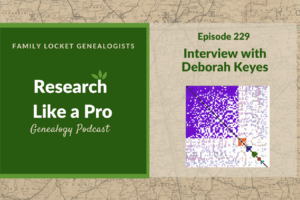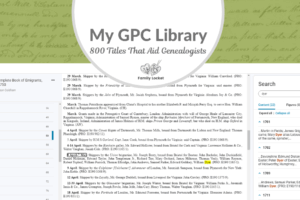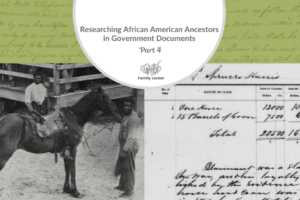When working on an African American research project, what resources can help you? Genealogy research in the 21st century certainly has its perks and one of those is an abundance of material to guide us. Although online resources abound, sometimes, a book that can be digested in small chunks provides the best learning experience. Here are titles from my bookshelf.
General Reference Books
 Finding A Place Called Home: A Guide to African-American Genealogy and Historical Identity by Dee Parmer Woodtor
Finding A Place Called Home: A Guide to African-American Genealogy and Historical Identity by Dee Parmer Woodtor
Although Woodtor wrote Finding A Place Called Home in the pre-internet era, the methodology for African American research remains the same. The book takes the reader on a journey – beginning with interviewing the oldest relatives and ending with advanced topics. Each chapter explains the necessity for using a record type or strategy and provides interesting examples.
Available from online booksellers and at libraries throughout the United States.
 Dictionary of Afro-American Slavery edited by Randall M. Miller and John David Smith
Dictionary of Afro-American Slavery edited by Randall M. Miller and John David Smith
Written from a historian’s perspective rather than a genealogist’s – the Dictionary of Afro-American Slavery consists of essays covering every topic imaginable relating to slavery in the United States. Arranged alphabetically, the Dictionary covers localities on the city and state level, describing the practices of slavery in that area. Specific essays describe churches and religion; free blacks, education, the Civil War, and many more. Each essay offers a selected bibliography at the end so you can add to your knowledge of that topic.
Available from online booksellers and at libraries throughout the United States.
Black Genesis: A Resource Book for African-American Genealogy by James M. Rose and Alice Eichholz
Part of the African American offerings from Genealogical Publishing, Black Genesis consists of two parts. Part 1 provides a brief overview for genealogists of history, sources, and repositories. Part 2 examines each state and lists important dates, repositories, and record collections specific to African American research. The listings for manuscript collections are especially valuable as those are not as readily available online.
Available from online booksellers and at libraries throughout the United States.

Black History: A Guide to Civilian Records in the National Archives compiled by Debra L. Newman
We use census, military, and land records from the vast collection of the National Archives. But do we realize that the archives hold countless other records that could help us with our African American research? Newman has taken the guesswork out of our research with Black History. As stated in the introduction, “The purpose of this guide is to assist the researcher in locating within the National Archives of the United States those records of civilian agencies that have been concerned with the black population.”
Some of the content is online at archives.gov: “Guide to Black History.”
Newman summarizes the record groups, explains the history and the arrangement within the collection. Some of the record groups included are the Civilian Conservation Corps, the U.S. Railroad Administration, and the Works Progress Administration.
Available from online booksellers and at libraries throughout the United States.
Locality Specific Reference Books
If you specialize in a region, you might consider investing in books that can further the research. Genealogical Publishing Company has several titles for African American research in North and South Carolina, New York, Virginia, and Georgia. For example, if researching free people of color in the Carolinas and Virginia, Paul Heinegg’s books are invaluable.

Free African Americans of North Carolina, Virginia, and South Carolina: From the Colonial Period to About 1820 by Paul Heinegg
Now in three volumes and its sixth edition, Heinegg states in the introduction, “These genealogies, comprising the colonial history of the majority of the free African American families of Virginia and North Carolina, describe the colonial and early national history of their communities.”
Volume 1 covers families with the surnames of Abel to Drew. Volume 2 lists families with the surnames of Driggers to Month. Volume 3 discusses families Moore to Young. Each volume lists the sources for the genealogies and has an all-name index.
Available from online booksellers and at libraries throughout the United States.
Investing in books on African American research methodology and resources will grow your experience as well as your library.
Best of luck in all your genealogical endeavors!
















2 Comments
Leave your reply.